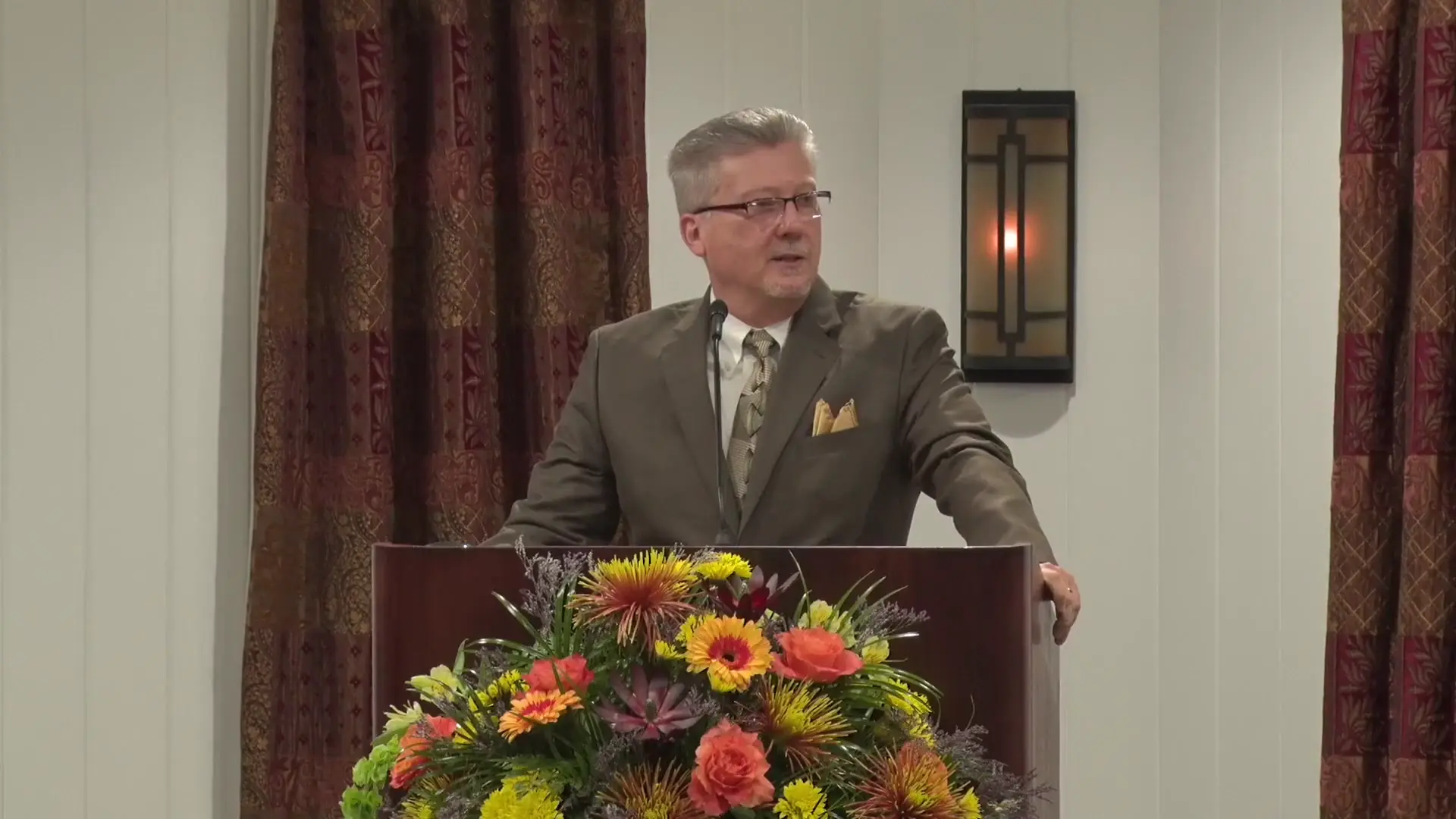Filter by Categories

Did God the Father Forsake Jesus Christ?
Sermon by David C. GrabbeJesus Christ, on the cross, expressed a profound sense of abandonment by God when he cried out, "My God, my God, why have you forsaken me?" This moment is often interpreted as Jesus experiencing the full weight of human sin and separation from God. Theologically, this cry is seen as Jesus taking upon himself the curse of sin, which results in a temporary separation from God the Father. This event underscores the gravity of sin and the depth of Jesus' sacrifice for humanity's redemption.
The Last Words of Jesus Christ
Sermon by Martin G. CollinsJesus Christ, in His deepest agony on the stake at Calvary, cried out to His Father, "My God, My God, why have You forsaken Me?" This intense plea, spoken in Aramaic and recorded in both Matthew and Mark, revealed the profound sense of abandonment He felt. Hanging there, He was utterly alone, cut off from His heavenly Father, bearing the weight of humanity's sins. This separation, experienced during three hours of supernatural darkness, reflected the stark reality of sin's consequence—total isolation from God. As He took on the sins of mankind, Jesus endured the pain and anguish of this disconnection, a state most of the world remains unaware of today. Despite this, His cry was not without faith; He still addressed the Father as "My God," showing His enduring trust even in desolation. This moment underscored the immutable nature of God's laws, leaving no alternative but for the Father to withdraw from His Son, who had become sin for humanity. Through this, Jesus fully comprehended the human experience of being cut off from God, enhancing His intercession for mankind with deeper meaning and commitment.
Jesus' Final Human Thoughts (Part One)
Article by StaffIn the final hours of His human life, Jesus experienced profound sorrow and distress, particularly as He faced separation from His heavenly Father. This intense agony, which began at Gethsemane, was marked by a sudden and deep sorrow that surpassed any human experience. As recorded in Matthew 27:46, about the ninth hour, Jesus cried out with a loud voice, saying, 'Eli, Eli, lama sabachthani?' which translates to, 'My God, My God, why have You forsaken Me?' This cry, derived from the Greek verb egkataleipo, reveals Jesus' anguished plea to His Father, questioning why He had been deserted and left behind in His suffering. This moment of being forsaken, of being cut off from communication with His perfect, loving, and eternal Father, was among the most painful aspects of His sacrifice, contributing significantly to the depth of His travail.
Final Words of Jesus on the Cross
Sermon by Clyde FinkleaDuring the crucifixion, as Jesus hung on the cross, He experienced immense suffering and abandonment. In the total darkness from noon to three o'clock, He cried out, quoting Psalm 22, expressing the anguish of being forsaken by God. At that moment, the weight of all the sins of the world was poured upon Him, and He bore this burden alone. Despite the mockery of those around Him, who taunted whether God would come to His rescue, Jesus endured this separation and suffering as part of His redemptive mission. His focus remained on fulfilling the purpose His Father had given Him, even in the deepest moment of isolation.
Scripture Fulfilled in Christ's Death
Sermon by Martin G. CollinsFour distinct Old Testament Messianic prophecies were fulfilled by Christ's death and cited by the Apostle John.

Jesus in the Feasts (Part Four): Atonement
Sermon by Richard T. RitenbaughIsaiah 53 and passages from the New Testament substantiate Christ's dual role in shedding His blood and bearing away sins, thereby reconciling humanity to God.
The Messiah in Three Psalms
Sermonette by Ted E. BowlingPsalms 22, 23 and 24 form a trilogy, each part of of which is a Messianic prophecy that tells a part of the Gospel of God's Kingdom.

David the Prophet
'Prophecy Watch' by Richard T. RitenbaughAmong his many other accomplishments, King David was a significant prophet. Psalm 22, for example, is a clearly recognizable prophecy of Christ's suffering.
The Unity of Atonement
Sermonette by Austin Del CastilloWe fast to learn humility, sacrifice, and empathy towards our Savior, who had His blood shed and who bore our sins, being forsaken for our sakes.
Sin: The Wall That Separates
Sermonette by Ted E. BowlingOur sins separate us from God; if we want to walk with God, it must be without sin. It is for our benefit that God holds such a high standard.

The Cursed Redeemer
Sermon by Richard T. RitenbaughHanging on a tree was designated the punishment for the worst kind of sin. Jesus was hung on a tree, having fulfilled the curse of the law for us.
Curses
Sermonette by Martin G. CollinsUttering curses with the desire to inflict pain upon someone is as old as humanity. The Bible calls for the death penalty for cursing parents or dignitaries.
The Doctrine of Israel (Part Ten): Where Is Israel Today?
Sermon by Richard T. RitenbaughNo matter how scattered Israel is, God will not lose the smallest grain. Using Jerusalem as a reference point, Israel dispersed north and west into Europe.